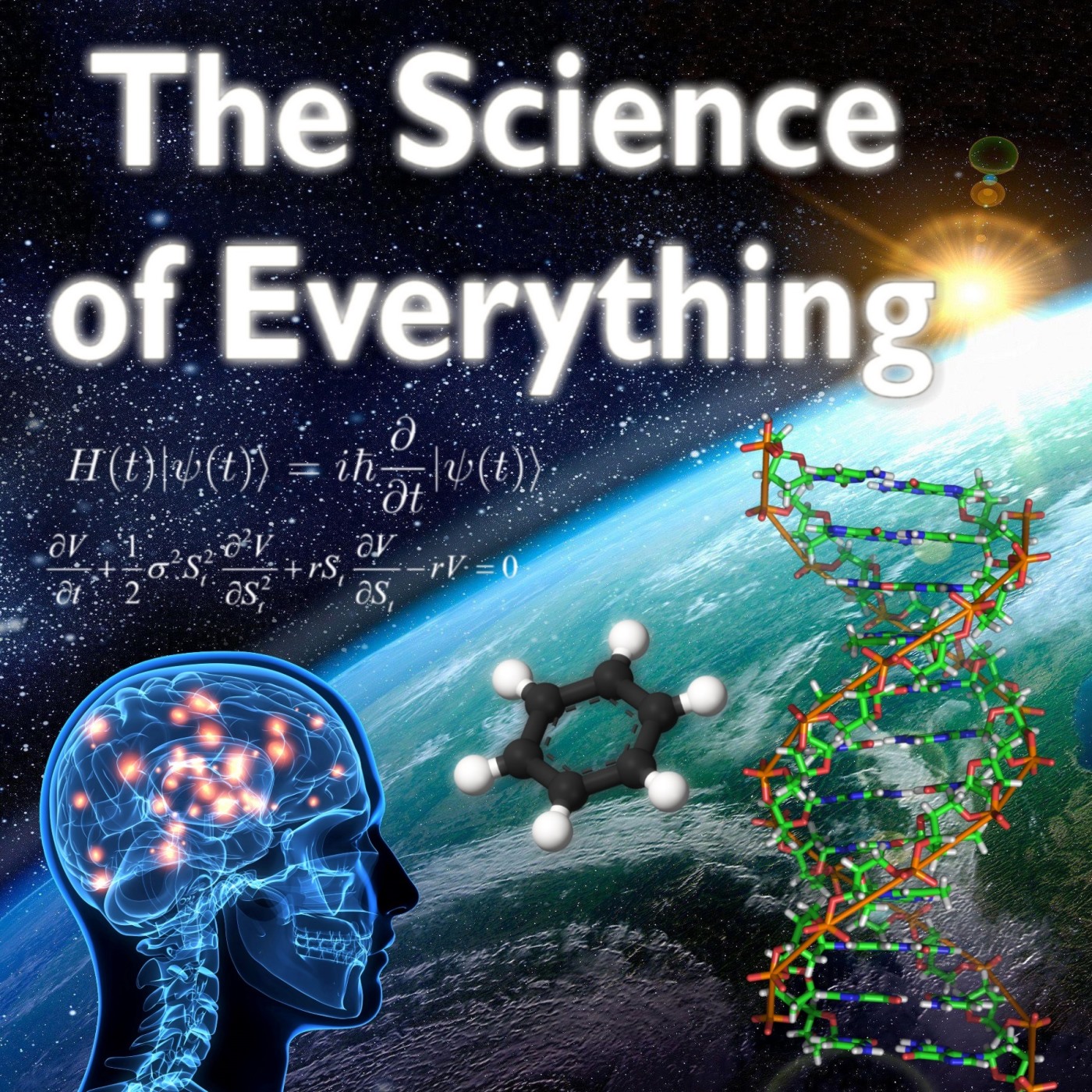

The Science of Everything Podcast
James Fodor
I discuss a variety of topics in both the natural and social sciences, exploring the many fascinating insights that the scientific method yields about the world around us.
Episodes
Mentioned books

Mar 31, 2020 • 1h 11min
Episode 103: Introduction to Economic Growth and Global Poverty
In this the first in an eight-part series covering the causes of economic growth and development, I provide an introduction to the key concepts of absolute and relative poverty, different theories of development, and how GDP is defined and measured. I also discuss the differences between rural and urban poverty, give an overview of the different levels of development of various countries around the world, and outline some of the major methodological challenges in studying causes of economic growth around the world. Recommended pre-listening is Episode 12: The Price System, and Episode 56: The Gains from Trade.
If you enjoyed the podcast please consider supporting the show by making a paypal donation or becoming a patreon supporter.
https://www.patreon.com/jamesfodor
https://www.paypal.me/ScienceofEverything

Mar 11, 2020 • 40min
Episode 102: Photosynthesis Part II
Continuing the discussion of photosynthesis from the previous episode, here I outline the importance of the oxygen evolving complex in oxidising water molecules, the importance of photosystem I in extracting additional energy, and the role of light-independent reactions of the Calvin cycle in carrying out carbon fixation. Recommended pre-listening is Episode 101: Photosynthesis Part I.
If you enjoyed the podcast please consider supporting the show by making a paypal donation or becoming a patreon supporter.
https://www.patreon.com/jamesfodor
https://www.paypal.me/ScienceofEverything

Feb 27, 2020 • 53min
Episode 101: Photosynthesis Part I
An overview of photosynthesis, including the structure of chloroplasts, phototransduction of energy by chlorophyll, the macromolecular complexes of the thylakoid membrane. I also discuss the mechanisms of electron transfer along the electron transport chain, and the role of ATP synthase in generating ATP. Recommended pre-listening is Episode 75: Cellular Respiration, Episode 32: Light and Optics, and Episode 18: Biochemistry Basics.
If you enjoyed the podcast please consider supporting the show by making a paypal donation or becoming a patreon supporter.
https://www.patreon.com/jamesfodor
https://www.paypal.me/ScienceofEverything

Feb 12, 2020 • 26min
Special Episode: History and Future of the Show
A special episode in which I discuss some of the ideas and principles behind the production of the show, sources I use for episodes, and my motivations for starting the podcast. I also talk about my own background and research interests, my thoughts about the relationship between science and philosophy, and some ideas for the future of the Science of Everything Podcast.

Jan 18, 2020 • 1h 22min
Episode 100: Unsolved Problems in Science
In this special celebratory 100th episode, I discuss six major unsolved problems in science: the P vs NP problem in computer science, the mystery of dark matter in physics, the existence of the island of stability in chemistry, the historical occurrence of a snowball Earth scenario from geology, the protein folding problem from biochemistry, and the origin of the Cambrian explosion in evolutionary biology. I also discuss some important ideas relating to the future of the podcast.
If you enjoyed the podcast please consider supporting the show by making a paypal donation or becoming a patreon supporter.
https://www.patreon.com/jamesfodor
https://www.paypal.me/ScienceofEverything

Jan 6, 2020 • 1h 2min
Episode 99: Plant Reproduction and Fruit
A discussion of the method of reproduction of flowering plants, including an overview of the structure and function of the different components of the flower, pollination, double fertilisation, and seed formation, dispersal, and germination. I also discuss the different types of fruit and vegetables and how the different components of the plant relate to the parts that we consume. I conclude with a brief overview of non-edible plant products, including fibres, resin, and sap. Recommended prerequisite is Episode 97: Plant Structure and Function.

16 snips
Dec 27, 2018 • 48min
Episode 98: Electromagnetic Radiation
An overview of the nature and properties of electromagnetic radiation, including a discussion of the electromagnetic spectrum, the nature of photons, the speed of light, near and far field radiation, and technological applications of electromagnetic radiation in AM and FM radiation and microwave ovens. Recommended pre-listening is Episode 61: Magnetism and Episode 57: Electric Current and Circuits.

Jun 27, 2018 • 58min
Episode 97: Plant Structure and Function
Dive into the fascinating world of plants, exploring their unique structures and functions. Discover how shoots capture sunlight while roots absorb vital nutrients. Learn about the crucial roles of leaves and roots in growth and photosynthesis. Uncover the remarkable sensory systems plants use to respond to their environment, including how they move and adapt to changes. From basic morphology to complex interactions, this journey reveals the intelligence of the plant kingdom.

Apr 3, 2018 • 54min
Special Episode - Jared Bauer on Science and Philosophy in Movies
In this special episode I am joined by Jared Bauer, cofounder of Wisecrack, to discuss science and philosophy in movies and popular culture. We cover a range of topics including how science is portrayed in movies, how the film medium leads to science and history being presented in particular ways, and how movies and popular culture can be used as a vehicle for promoting scientific and philosophical inquiry.

5 snips
Mar 2, 2018 • 45min
Episode 96: How Computers Work Part VI - High Level Programming and Software
In the final episode of our series on computers, I give an introduction to high-level programming languages, how they relate to assembly language and machine code, and how the compiler converts high level programs into a form that can be executed by the processor. I then outline some of the key components to high-level programming, such as data structures, control structures, and algorithms, before sketching an example implementation of a simple game. I conclude with an integrative summary of computer structure from silicon up to the operating system.


